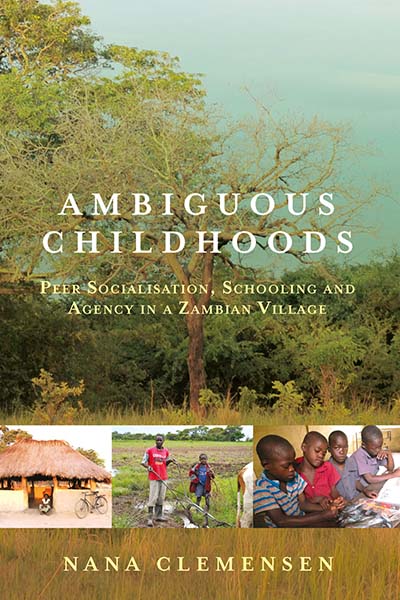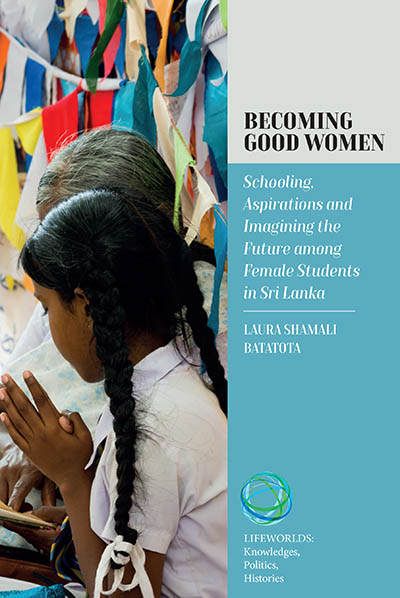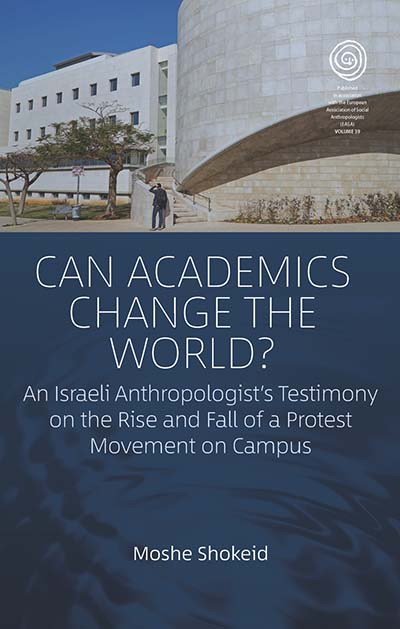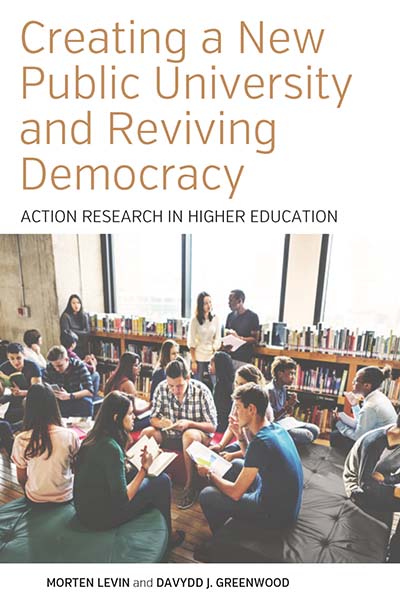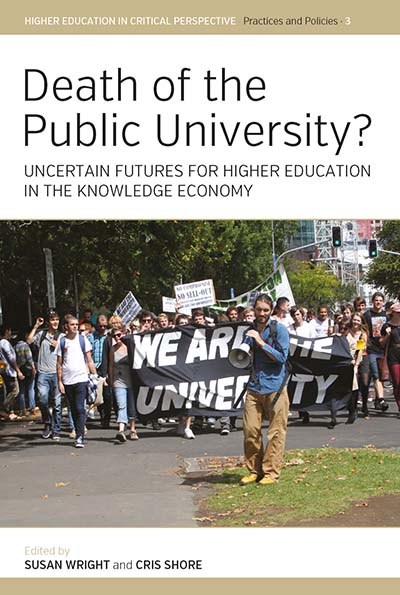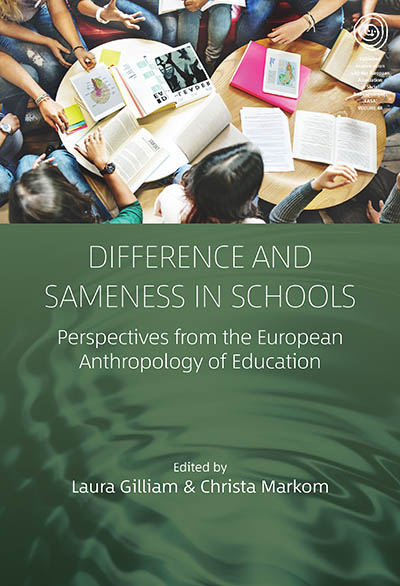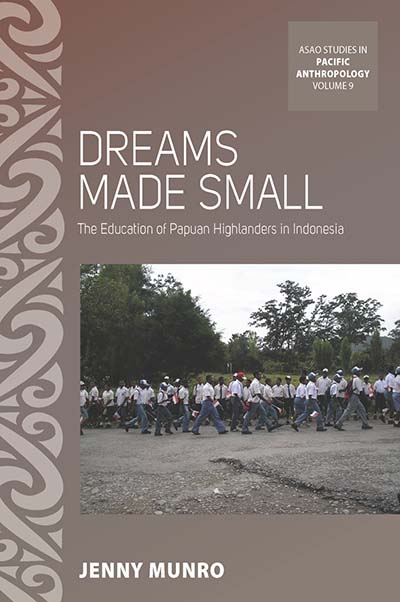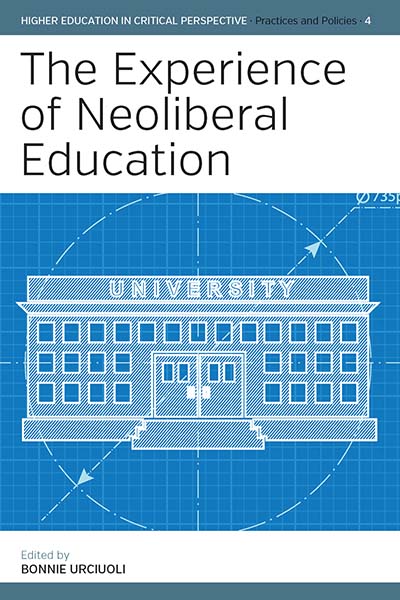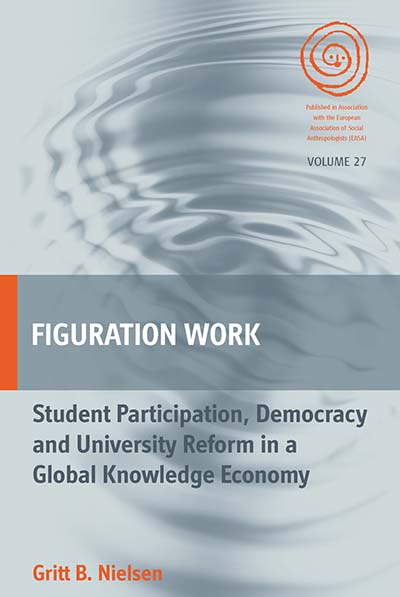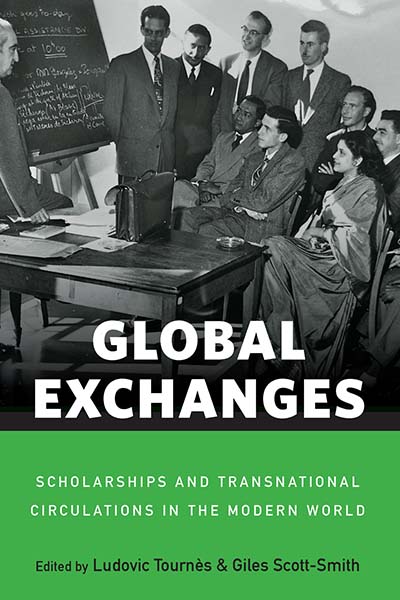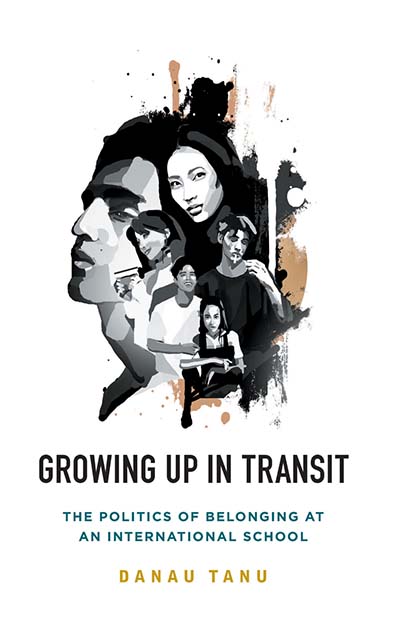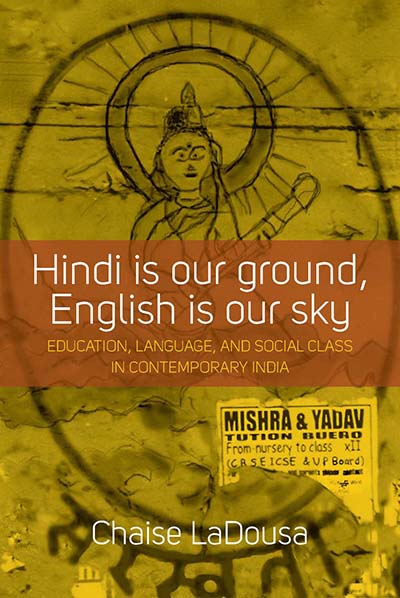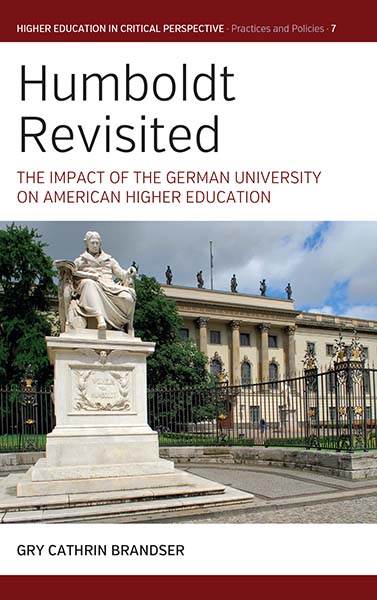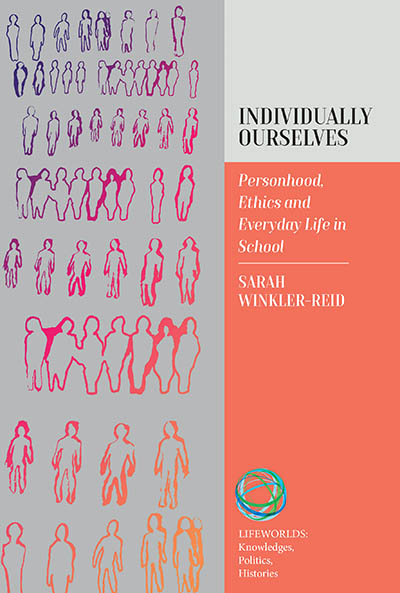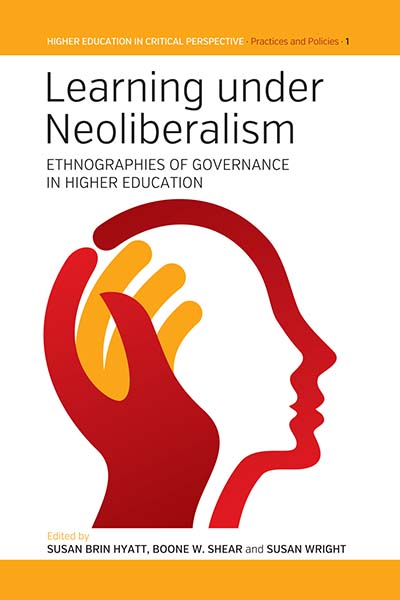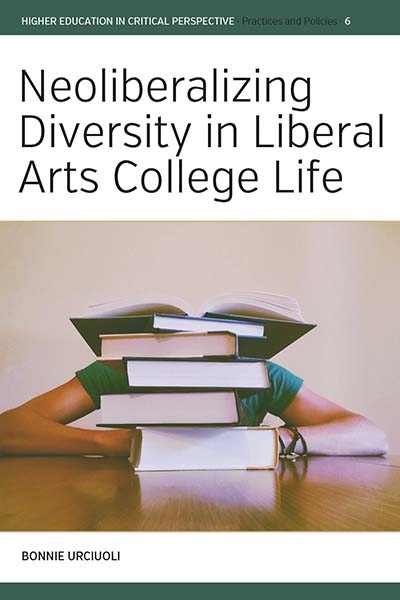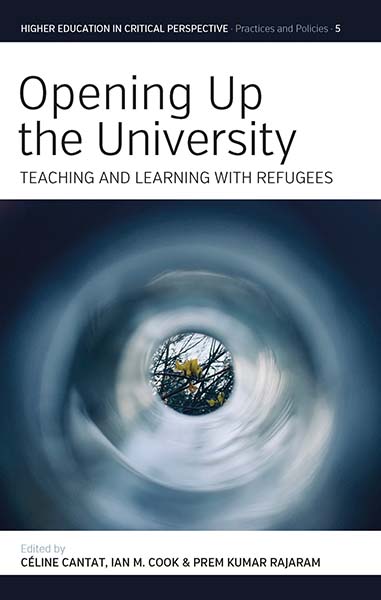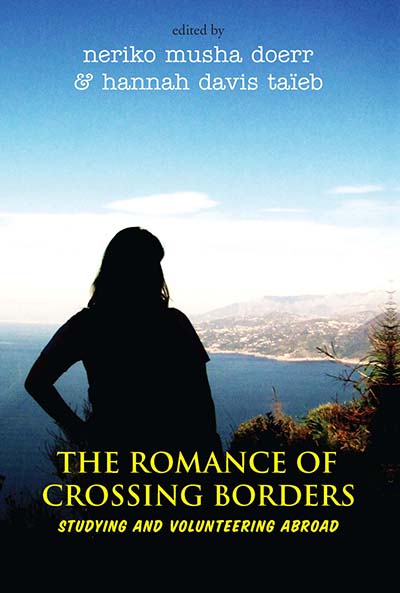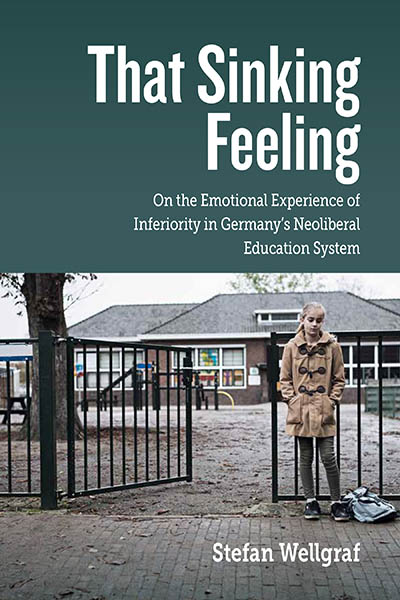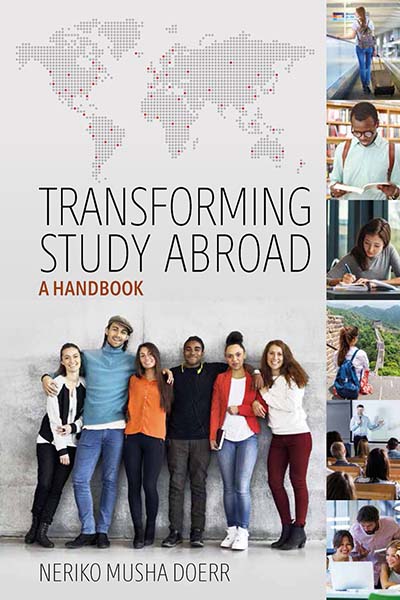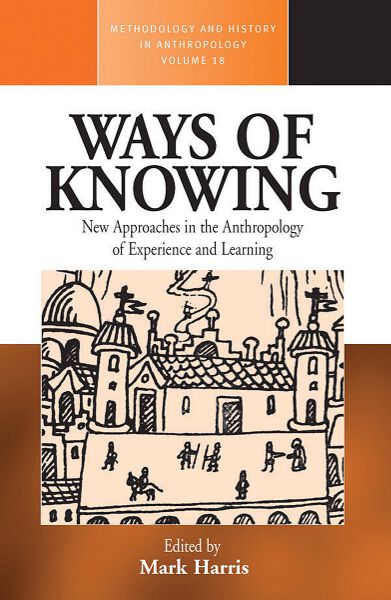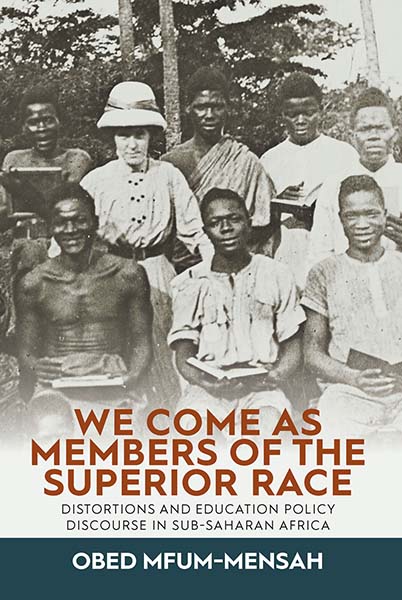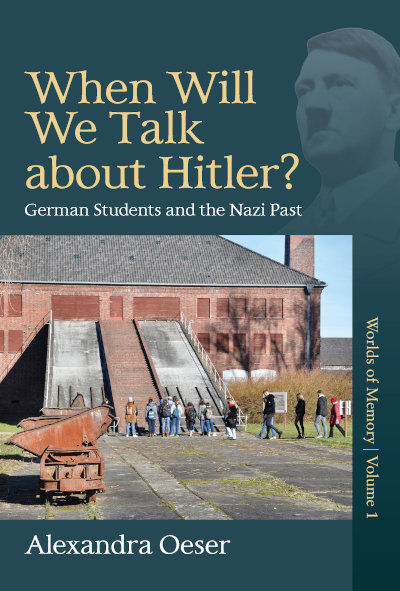Home -> Browse
-

Ambiguous Childhoods
Peer Socialisation, Schooling and Agency in a Zambian Village
Clemensen, N.
Growing up with social and economic upheaval in the peripheries of global neoliberalism, children in rural Zambia are presented with diverging social and moral protocols across homes, classrooms, church halls, and the streets. Mostly unmonitored by adults, they explore the ambiguities of adult life in playful interactions with their siblings and kin across gender and age. Drawing on rich linguistic-ethnographic details of such interactions combined with observations of school and household procedures, the author provides a rare insight into the lives, voices, and learning paths of children in a rural African setting.
Subjects: Anthropology (General) Sociology Development Studies Educational Studies
Area: Africa
-

Becoming Good Women
Schooling, Aspirations and Imagining the Future Among Female Students in Sri Lanka
Batatota, L. S.
For female Sinhalese students attending a national school in the Central Province of Sri Lanka, the school serves as a significant base for cultural production, particularly in reproducing ethno-religious hegemony under the guise of ‘good’ Buddhist girls. It illustrates that tuition space acts as an important site for placemaking, where students play out their cosmopolitan aspirations whilst acquiring educational capital. Drawing on theories of social reproduction, the book examines young people’s aspirations of ‘figuring out’ their identity and visions of the future against the backdrop of nation-building processes within the school.
Subjects: Political and Economic Anthropology Educational Studies Gender Studies and Sexuality Sustainable Development Goals
Area: Asia
-

Can Academics Change the World?
An Israeli Anthropologist's Testimony on the Rise and Fall of a Protest Movement on Campus
Shokeid, M.
Moshe Shokeid narrates his experiences as a member of AD KAN (NO MORE), a protest movement of Israeli academics at Tel Aviv University, who fought against the Israeli occupation of Palestinian territories, founded during the first Palestinian Intifada (1987-1993). However, since the assassination of Prime Minister Rabin and the later obliteration of the Oslo accord, public manifestations of dissent on Israeli campuses have been remarkably mute. This chronicle of AD KAN is explored in view of the ongoing theoretical discourse on the role of the intellectual in society and is compared with other account of academic involvement in different countries during periods of acute political conflict.
Subjects: Political and Economic Anthropology Jewish Studies Anthropology (General) Educational Studies
Area: Middle East & Israel
-

Creating a New Public University and Reviving Democracy
Action Research in Higher Education
Levin, M. & Greenwood, D. J.
Public universities are in crisis, waning in their role as central institutions within democratic societies. Denunciations are abundant, but analyses of the causes and proposals to re-create public universities are not. Based on extensive experience with Action Research-based organizational change in universities and private sector organizations, Levin and Greenwood analyze the wreckage created by neoliberal academic administrators and policymakers. The authors argue that public universities must be democratically organized to perform their educational and societal functions. The book closes by laying out Action Research processes that can transform public universities back into institutions that promote academic freedom, integrity, and democracy.
Subjects: Anthropology (General) Educational Studies Sociology
-

Death of the Public University?
Uncertain Futures for Higher Education in the Knowledge Economy
Wright, S. & Shore, C. (eds)
Universities have been subjected to continuous government reforms since the 1980s, to make them ‘entrepreneurial’, ‘efficient’ and aligned to the predicted needs and challenges of a global knowledge economy. Under increasing pressure to pursue ‘excellence’ and ‘innovation’, many universities are struggling to maintain their traditional mission to be inclusive, improve social mobility and equality and act as the ‘critic and conscience’ of society. Drawing on a multi-disciplinary research project, University Reform, Globalisation and Europeanisation (URGE), this collection analyses the new landscapes of public universities emerging across Europe and the Asia-Pacific, and the different ways that academics are engaging with them.
Subjects: Educational Studies Anthropology (General)
Areas: Europe Asia-Pacific
-

Difference and Sameness in Schools
Perspectives from the European Anthropology of Education
Gilliam, L. & Markom, C. (eds)
Presenting European Anthropology of Education through eleven studies of European schools, this volume explores the constructing and handling of difference and sameness in the central institutions of schools. Based on ethnographic studies of schools in Greece, England, Norway, Italy, Switzerland, the Czech Republic, Spain, Austria, Russia, Germany, the Netherlands and Denmark, it illustrates how anthropological studies of schools provide a window to larger society. It thus offers insights into cultural lessons taught to children through policies, institutional structures and everyday interactions, as well as into schools’ entanglement in state projects, cultural processes, societal histories and conflicts, and hence into contemporary Europe.
Subjects: Educational Studies Anthropology (General) Sociology Sustainable Development Goals
Area: Europe
-

Dreams Made Small
The Education of Papuan Highlanders in Indonesia
Munro, J.
For the last five decades, the Dani of the central highlands of West Papua, along with other Papuans, have struggled with the oppressive conditions of Indonesian rule. Formal education holds the promise of escape from stigmatization and violence. Dreams Made Small offers an in-depth, ethnographic look at journeys of education among young Dani men and women, asking us to think differently about education as a trajectory for transformation and belonging, and ultimately revealing how dreams of equality are shaped and reshaped in the face of multiple constraints.
Subjects: Anthropology (General) Educational Studies Cultural Studies (General)
Area: Asia-Pacific
-

Education, Aspiration and Social Mobility
Uncertain Futures for Rural Youth in India
Froerer, P.
Informed by over two decades of anthropological research in Chhattisgarh, Education, Aspiration and Social Mobility brings ethnographic nuance to the contradictory ways in which education represents both a strategy for social mobility and a very tangible risk, whose transformative potential is not as straightforward as proponents suggest. This book examines the relationship between education, aspiration and social mobility amongst marginalized Adivasi (tribal) youth in rural India and how young people navigate the tensions and uncertainty that emanate from this contradiction – fashioning their own meanings and understandings of education against a backdrop of structural constraints and a future in flux.
Subjects: Political and Economic Anthropology Educational Studies Mobility Studies Sociology
Area: Asia
-

The Experience of Neoliberal Education
Urciuoli, B. (ed)
The college experience is increasingly positioned to demonstrate its value as a worthwhile return on investment. Specific, definable activities, such as research experience, first-year experience, and experiential learning, are marketed as delivering precise skill sets in the form of an individual educational package.
Through ethnography-based analysis, the contributors to this volume explore how these commodified "experiences" have turned students into consumers and given them the illusion that they are in control of their investment. They further reveal how the pressure to plan every move with a constant eye on a demonstrable return has supplanted traditional approaches to classroom education and profoundly altered the student experience.
Subjects: Educational Studies Anthropology (General)
Area: North America
-

Figuration Work
Student Participation, Democracy and University Reform in a Global Knowledge Economy
Nielsen, G. B.
What role should students take in shaping their education, their university, and the wider society? These questions have assumed new importance in recent years as universities are reformed to become more competitive in the “global knowledge economy.” With Denmark as the prism, this book shows how negotiations over student participation — influenced by demands for efficiency, flexibility, and student-centered education — reflect broader concerns about democracy and citizen participation in increasingly neoliberalised states. Combining anthropological and historical research, Gritt B. Nielsen develops a novel approach to the study of policy processes and opens a timely discussion about the kinds of future citizens who will emerge from current reforms.
Subjects: Educational Studies Anthropology (General)
Area: Europe
-

Global Exchanges
Scholarships and Transnational Circulations in the Modern World
Tournès, L. & Scott-Smith, G. (eds)
Exchanges between different cultures and institutions of learning have taken place for centuries, but it was only in the twentieth century that such efforts evolved into formal programs that received focused attention from nation-states, empires and international organizations. Global Exchanges provides a wide-ranging overview of this underresearched topic, examining the scope, scale and evolution of organized exchanges around the globe through the twentieth century. In doing so it dramatically reveals the true extent of organized exchange and its essential contribution for knowledge transfer, cultural interchange, and the formation of global networks so often taken for granted today.
Subjects: Mobility Studies History: 20th Century to Present Educational Studies
-

Growing Up in Transit
The Politics of Belonging at an International School
Tanu, D.
“[R]ecommended to anyone interested in multiculturalism and migration….[and] food for thought also for scholars studying migration in less privileged contexts.”—Social Anthropology
In this compelling study of the children of serial migrants, Danau Tanu argues that the international schools they attend promote an ideology of being “international” that is Eurocentric. Despite the cosmopolitan rhetoric, hierarchies of race, culture and class shape popularity, friendships, and romance on campus.
By going back to high school for a year, Tanu befriended transnational youth, often called “Third Culture Kids”, to present their struggles with identity, belonging and internalized racism in their own words. The result is the first engaging, anthropological critique of the way Western-style cosmopolitanism is institutionalized as cultural capital to reproduce global socio-cultural inequalities.
From the introduction:
When I first went back to high school at thirty-something, I wanted to write a book about people who live in multiple countries as children and grow up into adults addicted to migrating. I wanted to write about people like Anne-Sophie Bolon who are popularly referred to as “Third Culture Kids” or “global nomads.” … I wanted to probe the contradiction between the celebrated image of “global citizens” and the economic privilege that makes their mobile lifestyle possible. From a personal angle, I was interested in exploring the voices among this population that had yet to be heard (particularly the voices of those of Asian descent) by documenting the persistence of culture, race, and language in defining social relations even among self-proclaimed cosmopolitan youth.Subjects: Mobility Studies Anthropology (General) Educational Studies
Area: Asia-Pacific
-

Hindi Is Our Ground, English Is Our Sky
Education, Language, and Social Class in Contemporary India
LaDousa, C.
A sea change has occurred in the Indian economy in the last three decades, spurring the desire to learn English. Most scholars and media venues have focused on English exclusively for its ties to processes of globalization and the rise of new employment opportunities. The pursuit of class mobility, however, involves Hindi as much as English in the vast Hindi-Belt of northern India. Schools are institutions on which class mobility depends, and they are divided by Hindi and English in the rubric of “medium,” the primary language of pedagogy. This book demonstrates that the school division allows for different visions of what it means to belong to the nation and what is central and peripheral in the nation. It also shows how the language-medium division reverberates unevenly and unequally through the nation, and that schools illustrate the tensions brought on by economic liberalization and middle-class status.
Subjects: Educational Studies Anthropology (General)
Area: Asia
-

Humboldt Revisited
The Impact of the German University on American Higher Education
Brandser, G. C.
Humboldt Revisited offers a fresh perspective on the contemporary discourse surrounding reform of European universities. Arguing that contemporary reform derives its basis from pre-constructed truths about the so-called ‘Humboldt-university,’ this monograph traces the historical descent of these truths to the American reception of Humboldt's ideas from the mid-19th century up until the 1960s. Drawing from a rich selection of historical sources, this volume offers an alternative to conventional explanations of the forces behind the ongoing reform of European universities. It also challenges the conventional historical narrative on the Humboldt University, providing new insight into the American reception of the German ideas.
Subjects: Educational Studies History: 20th Century to Present Sociology
-

Individually Ourselves
Personhood, Ethics, and Everyday Life in School
Winkler-Reid, S.
Drawing on ethnographic fieldwork in a London high school, Individually Ourselves demonstrates how young people elaborate notions of individual personhood through their friendships, and pervasive peer ethics, shaped in and through relations of power and inequality. By examining the interplay between ourselves and others during such a formative time of life, the book addresses how individuality is produced in everyday life and how our interactions help create the person we become.
Subjects: Anthropology (General) Educational Studies Sociology
Area: Northern Europe
-

Learning Under Neoliberalism
Ethnographies of Governance in Higher Education
Hyatt, S. B., Shear, B. W., & Wright, S. (eds)
As part of the neoliberal trends toward public-private partnerships, universities all over the world have forged more intimate relationships with corporate interests and more closely resemble for-profit corporations in both structure and practice. These transformations, accompanied by new forms of governance, produce new subject-positions among faculty and students and enable new approaches to teaching, curricula, research, and everyday practices. The contributors to this volume use ethnographic methods to investigate the multi-faceted impacts of neoliberal restructuring, while reporting on their own pedagogical responses, at universities in the United States, Europe, and New Zealand.
Subjects: Educational Studies Anthropology (General)
-

Neoliberalizing Diversity in Liberal Arts College Life
Urciuoli, B.
As neoliberalism has expanded from corporations to higher education, the notion of “diversity” is increasingly seen as the contribution of individuals to an organization. By focusing on one liberal arts college, author Bonnie Urciuoli shows how schools market themselves as “diverse” communities to which all members contribute. She explores how students of color are recruited, how their lives are institutionally organized, and how they provide the faces, numbers, and stories that represent schools as diverse. In doing so, she finds that unlike students’ routine experiences of racism or other social differences, neoliberal diversity is mainly about improving schools’ images.
Subjects: Educational Studies Anthropology (General) Sociology
Area: North America
-

Opening Up the University
Teaching and Learning with Refugees
Cantat, C., Cook, I., & Rajaram, P. K. (eds)
Through a series of empirically and theoretically informed reflections, Opening Up the University offers insights into the process of setting up and running programs that cater to displaced students. Including contributions from educators, administrators, practitioners, and students, this expansive collected volume aims to inspire and question those who are considering creating their own interventions, speaking to policy makers and university administrators on specific points relating to the access and success of refugees in higher education, and suggests concrete avenues for further action within existing academic structures.
Subjects: Educational Studies Refugee and Migration Studies Sociology Sustainable Development Goals
-

The Romance of Crossing Borders
Studying and Volunteering Abroad
Doerr, N. M. & Davis Taïeb, H. (eds)
What draws people to study abroad or volunteer in far-off communities? Often the answer is romance – the romance of landscapes, people, languages, the very sense of border-crossing – and longing for liberation, attraction to the unknown, yearning to make a difference. This volume explores the complicated and often fraught desires to study and volunteer abroad. In doing so, the book sheds light on how affect is managed by educators and mobilized by students and volunteers themselves, and how these structures of feeling relate to broader social and economic forces.
Subjects: Anthropology (General) Travel and Tourism Educational Studies
-

That Sinking Feeling
On the Emotional Experience of Inferiority in Germany's Neoliberal Education System
Wellgraf, S.
Emotions, especially those of impoverished migrant families, have long been underrepresented in German social and cultural studies. That Sinking Feeling raises the visibility of the emotional dimensions of exclusion processes and locates students in current social transformations. Drawing from a year of ethnographic fieldwork with grade ten students, Stefan Wellgraf’s study on an array of both classic emotions and affectively charged phenomena reveals a culture of devaluation and self-assertion of the youthful, post-migrant urban underclass in neoliberal times.
Subjects: Educational Studies Sociology Anthropology (General)
Area: Germany
-

Transforming Study Abroad
A Handbook
Doerr, N. M.
Written for study abroad practitioners, this book introduces theoretical understandings of key study abroad terms including “the global/national,” “culture,” “native speaker,” “immersion,” and “host society.” Building theories on these notions with perspectives from cultural anthropology, political science, educational studies, linguistics, and narrative studies, it suggests ways to incorporate them in study abroad practices. Through attention to daily activities via the concept of immersion, it reframes study abroad not as an encounter with cultural others but as an occasion to analyze constructions of “differences” in daily life, backgrounded by structural arrangements.
Subjects: Travel and Tourism Educational Studies Mobility Studies
-

Ways of Knowing
New Approaches in the Anthropology of Knowledge and Learning
Harris, M. (ed)
That there are multiple ways of knowing the world has become a truism. What meaning is left in the sheer familiarity of the phrase? The essays here consider how humans come to know themselves and their worlds. Should anthropologists should seek complexity or simplicity in their analyses of other societies? By going beyond the notion that a way of knowing is a perspective on the world, this book explores paths to understanding, as people travel along them, craft their knowledge and shape experience. The topics examined here range from illness to ignorance, teaching undergraduates in Scotland to learning a Brazilian martial arts dance, Hegels concept of the dialectic to the poetry of a Swahili philosopher. A central concern is how anthropologists can know and write about the silent, theconcealed and theembodied.
Subjects: Theory and Methodology Educational Studies
-

We Come as Members of the Superior Race
Distortions and Education Policy Discourse in Sub-Saharan Africa
Mfum-Mensah, O.
Westerners have long represented Africans as “backwards,” “primitive,” and “unintelligent,” distortions which have opened the door for American philanthropies to push their own education agendas in Africa. We Come as Members of the Superior Race discusses the origin and history of these dangerous stereotypes and western “infantilization” of African societies, exploring how their legacy continues to inform contemporary educational and development discourses. By viewing African societies as subordinated in a global geopolitical order, these problematic stereotypes continue to influence education policy and research in Sub-Sahara Africa today.
Subjects: Educational Studies Development Studies Sociology Sustainable Development Goals
Area: Africa
-

When Will We Talk About Hitler?
German Students and the Nazi Past
Oeser, A.
For more than half a century, discourses on the Nazi past have powerfully shaped German social and cultural policy. Specifically, an institutional determination not to forget has expressed a “duty of remembrance” through commemorative activities and educational curricula. But as the horrors of the Third Reich retreat ever further from living memory, what do new generations of Germans actually think about this past? Combining observation, interviews, and archival research, this book provides a rich survey of the perspectives and experiences of German adolescents from diverse backgrounds, revealing the extent to which social, economic, and cultural factors have conditioned how they view representations of Germany’s complex history.
Subjects: History (General) Educational Studies Anthropology (General) Memory Studies
Area: Germany
-

Women Becoming Practitioner Researchers
From School Teacher to Academic
Corcoran, S. L., Goodley, C., Hay, A., & Olsson Rost, A. (eds)
Early career researchers (ECRs) in education bring unique histories of professional practice and development into academic research communities. Women Becoming Practitioner Researchers explores autoethnographies of twelve women who were, or still are, schoolteachers in the process of becoming researchers. Using autoethnography to disrupt the established systems that distance researchers from their research, the chapters in this volume are curated to apply theory to this important transition. This theory-as-method approach provides a foundation for understanding as the authors weave threads of identities and experiences into their roles as practitioner researchers.
Subjects: Educational Studies Anthropology (General)


